
Sydney Brenner was a South African biologist. In 2002, he shared the Nobel Prize in Physiology or Medicine with H. Robert Horvitz and Sir John E. Sulston. Brenner made significant contributions to work on the genetic code, and other areas of molecular biology while working in the Medical Research Council (MRC) Laboratory of Molecular Biology in Cambridge, England. He established the roundworm Caenorhabditis elegans as a model organism for the investigation of developmental biology, and founded the Molecular Sciences Institute in Berkeley, California, United States.
David Mervyn Blow was an influential British biophysicist. He was best known for the development of X-ray crystallography, a technique used to determine the molecular structures of tens of thousands of biological molecules. This has been extremely important to the pharmaceutical industry.

Ian Grojnowski is a mathematician working at the Department of Pure Mathematics and Mathematical Statistics at the University of Cambridge.
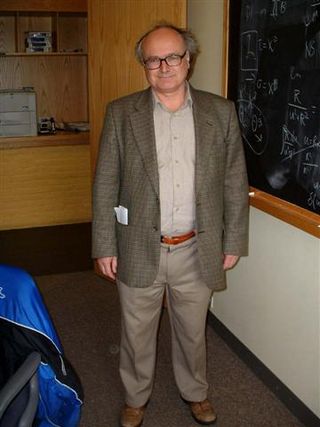
Gary William Gibbons is a British theoretical physicist.

Gordon David Plotkin is a theoretical computer scientist in the School of Informatics at the University of Edinburgh. Plotkin is probably best known for his introduction of structural operational semantics (SOS) and his work on denotational semantics. In particular, his notes on A Structural Approach to Operational Semantics were very influential. He has contributed to many other areas of computer science.
Robin Oliver Gandy was a British mathematician and logician. He was a friend, student, and associate of Alan Turing, having been supervised by Turing during his PhD at the University of Cambridge, where they worked together.

John Frederick William Birney is joint director of EMBL's European Bioinformatics Institute (EMBL-EBI), in Hinxton, Cambridgeshire and deputy director general of the European Molecular Biology Laboratory (EMBL). He also serves as non-executive director of Genomics England, chair of the Global Alliance for Genomics and Health (GA4GH) and honorary professor of bioinformatics at the University of Cambridge. Birney has made significant contributions to genomics, through his development of innovative bioinformatics and computational biology tools. He previously served as an associate faculty member at the Wellcome Trust Sanger Institute.

Christopher Abell was a British biological chemist who was a professor of biological chemistry at the Yusuf Hamied Department of Chemistry and Todd-Hamied Fellow of Christ's College, Cambridge. On his 2016 election to the Royal Society, Abell's research was described as having "changed the face of drug discovery."

(John) Martin Elliott Hyland is professor of mathematical logic at the University of Cambridge and a fellow of King's College, Cambridge. His interests include mathematical logic, category theory, and theoretical computer science.

Christopher Michael Bishop is a British computer scientist. He is a Microsoft Technical Fellow and Director of Microsoft Research AI4Science. He is also Honorary Professor of Computer Science at the University of Edinburgh, and a Fellow of Darwin College, Cambridge. Chris was a founding member of the UK AI Council, and in 2019 he was appointed to the Prime Minister’s Council for Science and Technology.
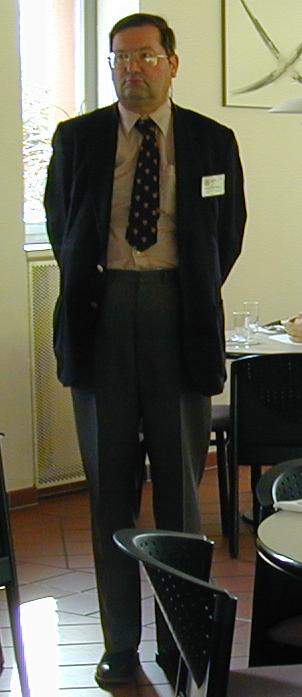
James Harold Davenport is a British computer scientist who works in computer algebra. Having done his PhD and early research at the Computer Laboratory, University of Cambridge, he is the Hebron and Medlock Professor of Information Technology at the University of Bath in Bath, England.
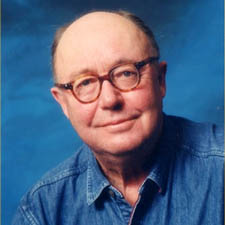
Roger Michael Needham was a British computer scientist.
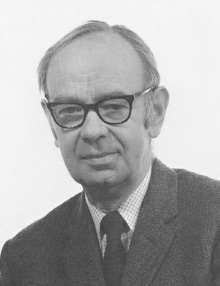
Alan Robertson was an English population geneticist. Originally a chemist, he was recruited after the Second World War to work on animal genetics on behalf of the British government, and continued in this sphere until his retirement in 1985. He was a major influence in the widespread adoption of artificial insemination of cattle.

Steven Elliot Brenner is a professor at the Department of Plant and Microbial Biology at the University of California Berkeley, adjunct professor at the Department of Bioengineering and Therapeutic Sciences at the University of California, and San Francisco Faculty scientist, Physical Biosciences at the Lawrence Berkeley National Laboratory.
Davide Sangiorgi is an Italian professor of computer science at the University of Bologna. He has previously held research positions at the University of Edinburgh and at Inria. He received his PhD from the University of Edinburgh under the supervision of Robin Milner in 1993. He has had visiting positions at the Centrum Wiskunde & Informatica, University of Cambridge, and University of Oxford.
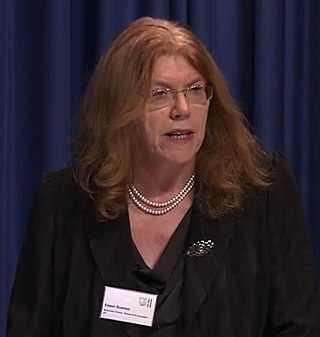
Eileen Scanlon is a British academic who is Regius Professor of Open Education at the Open University.
Augusto Cezar Alves Sampaio is a Brazilian computer scientist who works with formal methods and language semantics.
E-Theses Online Service (EThOS) is a bibliographic database and union catalogue of electronic theses provided by the British Library, the National Library of the United Kingdom. As of February 2022 EThOS provided access to over 500,000 doctoral theses awarded by over 140 UK higher education institutions, with around 3,000 new thesis records added every month until the British Library cyberattack forced the service to be temporarily taken offline.
David A. Rothery is professor of planetary geosciences at the Open University, where he chairs a level 2 module Planetary Science and the Search for Life and a level 1 module Volcanoes, Earthquakes and Tsunamis. He serves on the Open University's Senate.

Sir Richard Henry Treisman is a British scientist specialising in the molecular biology of cancer. Treisman is a director of research at the Francis Crick Institute in London.













